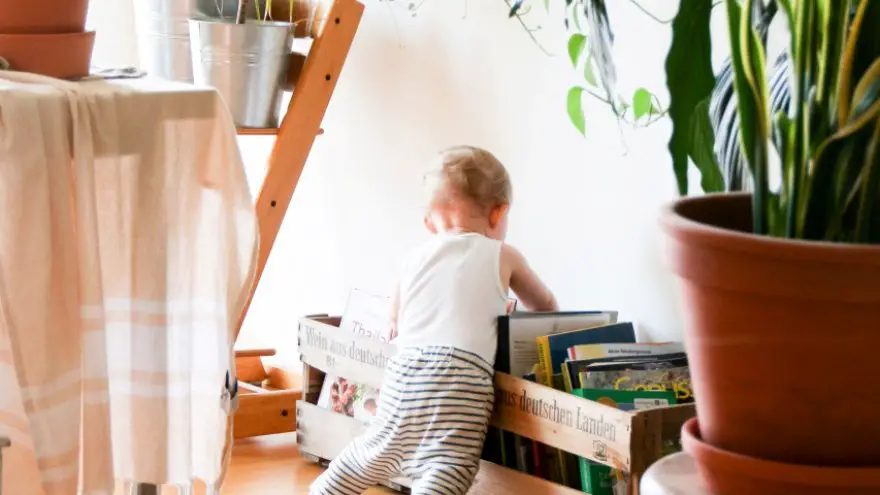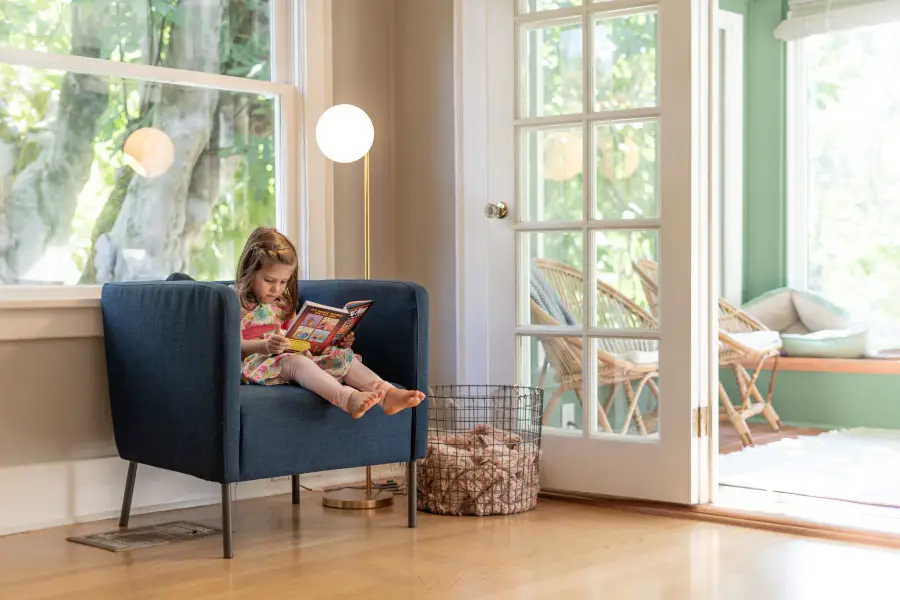When are Kids Old Enough to Stay Home Alone

There are several questions and curiosities that come up when you have a new addition to the family and especially when they are your first child. While many of those inquiries will be related to the child’s health and routine management (such as how often is too often to feed a baby or how much should the sleep for a healthy development, depending on their age at that time), there are still some aspects of a child’s routine that greatly depend on their own parent’s routine and general parenting style, as well as their responsibilities altogether.
The sense of independence in your child
One of those aspects is the question of when to start to cultivate a better sense of independence in your child and also try to manage your own commitments (work related or otherwise) at the same time. A way to achieve that is by starting to get them familiarized with being home alone, as it will be an inevitable part of their life as they grow up too.
While you have already been nurturing their sense of independence already, consciously or not, through various games or through allowing them to solve minor problems on their own and overall they have turned out to not be a clingy, codependent child, there’s still the aspect of temporarily leaving them on their own that marks a scary checkpoint for a parent.
If they were all fine roaming the house or property on their own, playing or just exploring to get them familiarized with all of the corners of the place, then leaving them at home with a nanny or a relative might have felt like a big step as well. You’re no longer there to keep an eye on them yourself from afar and you had to trust another person to be responsible and trustworthy enough to take care of your child in your absence. The worries of the person in charge not being careful enough always stuck with you, regardless of who the person was, but the relief of coming home to your little baby unharmed and the house still standing always topped those off. As time passed, you got used to that situation too, and if it hadn’t been the case to have a nanny yet, then perhaps the transition to directly leaving your child home alone will be a tad bit more stressful at first. But fear not!
Which are the risks?
When it comes to leaving a toddler or an older child home alone, with no supervision, the major factor that determines the age after which they can be trusted is their sense of trust itself. Do you two have a close relationship and are aware of each other’s trustworthiness? Are they a reliable child, no matter how old? Are they the kind to start pulling stunts as soon as you turned your back to them? These are the sort of questions that you need to ask yourself before deciding if the child is old enough to manage to stay home on their own.
That, and how well prepared or instructed they are to take care of themselves. As their parent, you are in charge of their well-being 24/7, and although you cannot look out for them when you are away with work or other responsibilities, we know you’re even more concerned if they are alright, if they ate and if they’re feeling fine. Also if the house is still standing.
Things to consider
As such, before you decide to leave them alone, teach them where everything necessary is in the house, like a phone they can use to call you if needed, or a room temperature ambient that they aren’t allowed to play with, and tell them why not, so curiosity doesn’t push them to do exactly the opposite. Otherwise, make sure to put anything out of their reach if they should not fiddle with it.
 Show them where you left their snacks for the day, so they don’t go browsing through cupboards for other things to eat and end up with an icky stomach. Show them where you store your toilet paper in the bathroom (which is more important than you might think, when leaving a toddler alone everything seems like a life or death situation to them, you don’t want them to freak out over a spill or find them stuck on the toilet thinking they’re stuck there now) and teach them how to check the door and when to come open or to stay put in case of someone knocking. If you live in an apartment complex, let them know that they don’t need to answer the intercom, if everyone who should have access to the apartment already has a key. If you leave windows open, make sure to close them before leaving too, in case of raining or otherwise, so they don’t panic if it starts to pour inside as well.
Show them where you left their snacks for the day, so they don’t go browsing through cupboards for other things to eat and end up with an icky stomach. Show them where you store your toilet paper in the bathroom (which is more important than you might think, when leaving a toddler alone everything seems like a life or death situation to them, you don’t want them to freak out over a spill or find them stuck on the toilet thinking they’re stuck there now) and teach them how to check the door and when to come open or to stay put in case of someone knocking. If you live in an apartment complex, let them know that they don’t need to answer the intercom, if everyone who should have access to the apartment already has a key. If you leave windows open, make sure to close them before leaving too, in case of raining or otherwise, so they don’t panic if it starts to pour inside as well.
If you’re too nervous or unsure about leaving them alone just yet, or if you feel overwhelmed by everything, just test them out. You can instruct them, then tell them you have to go somewhere for a bit, and then return before the term to see if they were being responsible or if they wanted to wait until the last minute, right before your arrival, to clean up their mess.
Reward their good behavior when you come back, to encourage it, and you will soon find yourself relaxing more about the whole arrangement.
Remember, there is no set age at which your child should be ready to face things on their own. It all matters on their levels of responsibility, trustworthiness, and maturity. My parents started allowing me to go to school and come back home alone when I was in second grade, as well as sit home alone since I was 5 years old, but later with school they would call my grandmother over to assist with homework and make sure I ate home cooked food, since I’d be sitting without them for a long time daily and I couldn’t quite be trusted to manage a stove (understandable, really). With my sister, though, they would still take her to and from school even in her fourth grade, despite growing up to stay home with me or alone after school and while I was in class for a good few years.
The sooner you start reading your child’s reliability, the better you will be able to trust them with day to day tasks and situations! Good luck!







